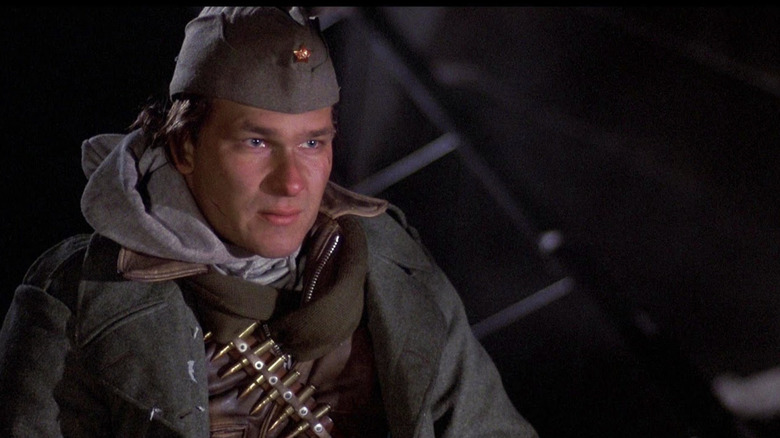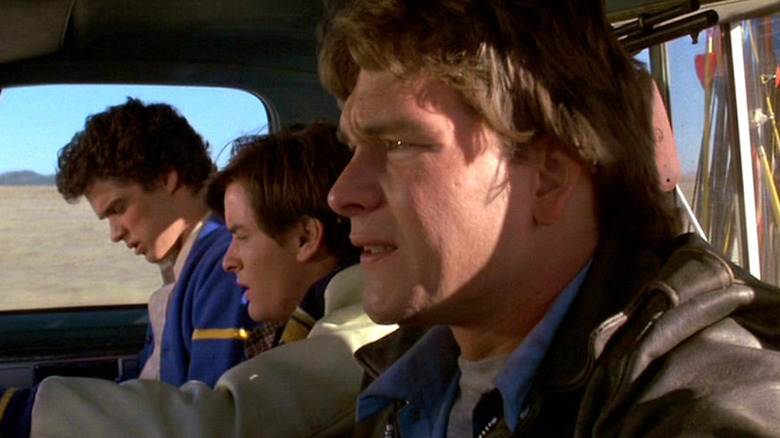Patrick Swayze Had To Shoulder A Lot Of Responsibility Behind The Scenes Of Red Dawn
With Ronald Reagan coasting to a landslide reelection in 1984 via patriotic posturing and Cold War fear-mongering, the time was right for John Milius' "Red Dawn." This expertly crafted martial fantasy about the Soviet Union capitalizing on a global catastrophe to invade a geopolitically isolated United States made a killing at the box office thanks largely to teenagers who believed they could, via ingenuity and love for country, lead a guerilla resistance against the freedom-hating Commie horde.
I fell hard for it as a 10-year-old in 1984, and still love it as a strange, heartfelt relic of post-Vietnam confidence building. Americans were so desperate for a military victory that they puffed their chests out after the successful invasion of Grenada in 1983. Since we all knew that a toe-to-toe slugfest against the USSR would likely result in nuclear armageddon, we had to get our ass-kicking wishes fulfilled at the multiplex. And so Milius gave us what we never knew we wanted with "Red Dawn," a rousingly bloody PG-13 counterpart to the era's myriad teen sex comedies.
Milius nailed the casting across the board, but his masterstroke was landing Patrick Swayze as the recently graduated football hero Jed Eckert. Swayze had recently played the leader of the greasers in Francis Ford Coppola's "The Outsiders" and a young, untested Marine in Ted Kotcheff's "Uncommon Valor." The native Texan was a believable badass and proved crucial in getting the audience to buy these kids as legitimately capable insurgents.
Milius appoints Swayze head Wolverine
John Milius knew what he had in Patrick Swayze, and used him to get the rest of the young actors — including Charlie Sheen, C. Thomas Howell, Lea Thompson, and Jennifer Grey — in line. As Swayze recalled on a retrospective documentary for the film's DVD:
"Milius is a very intense director, he's a very wonderful director. I love the man, but we had to call him The General. And he called me and he says, 'Swayze, you're my Lieutenant of the Art.' So he's, 'I'm directing these little suckers through you.' So he put a lot of responsibility on my shoulders, and I took it really seriously."
Milius cuts the jingoism of "Red Dawn" by humanizing the Cuban colonel (Ron O'Neal) in charge of the Colorado invasion. He has the opportunity to gun down a mortally wounded Jed Eckert, but allows him to carry his brother (Sheen) to the park where they used to play as kids, and where they will soon die. The moment hits hard because Jed has been a steady, compassionate leader, and basically chose to die because he could not in good conscience shoot the Russian Strelnikov (William Smith) in the back. There is mercy and decency on both sides of the conflict, which redeems the movie. Swayze hits every note in his final scene with heartbreaking confidence. He was a wonderfully resourceful actor, and I miss him dearly.

